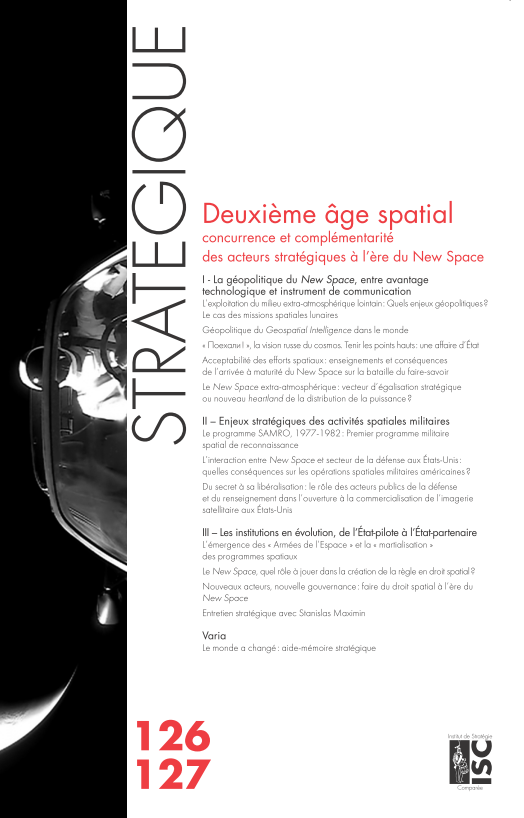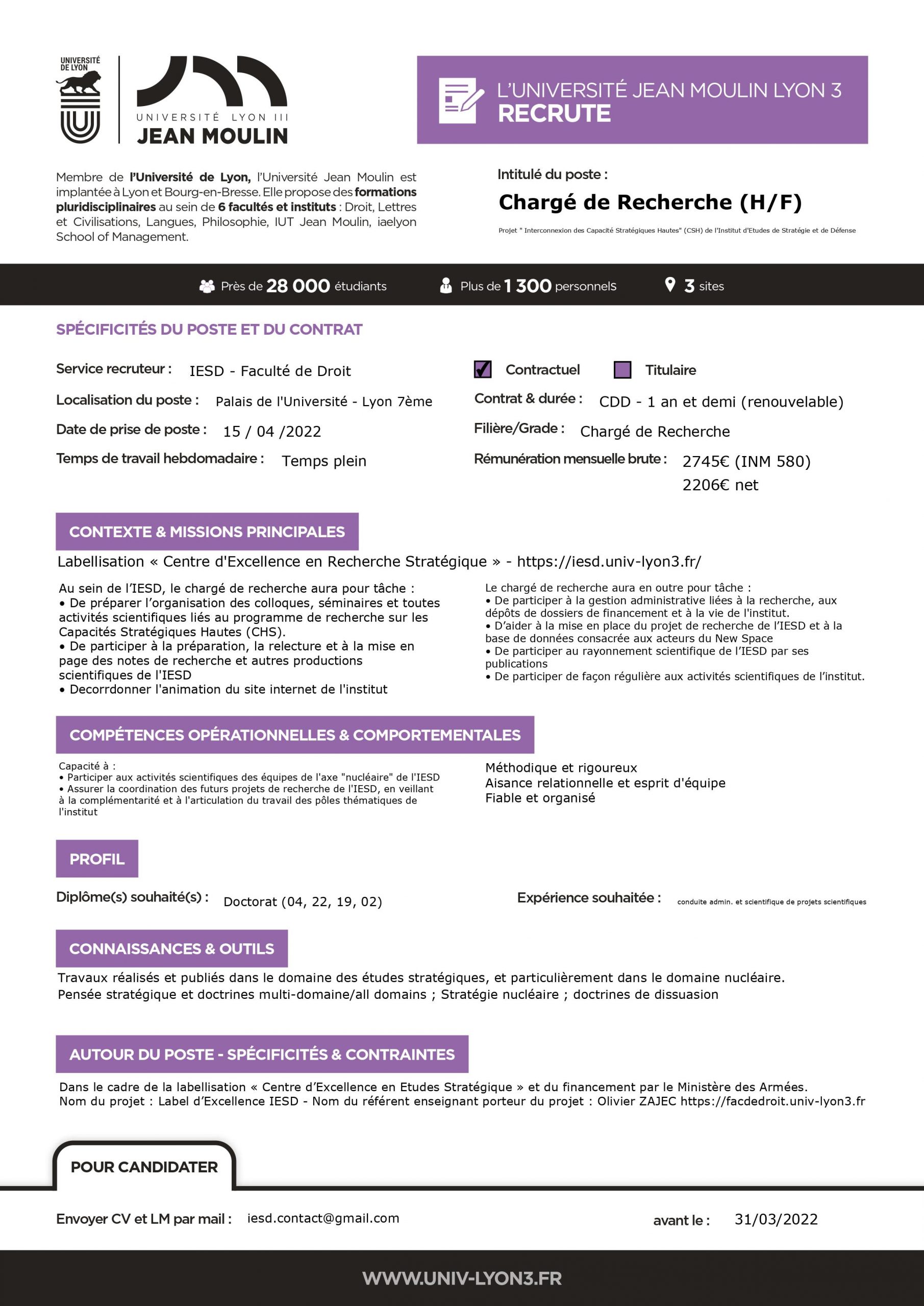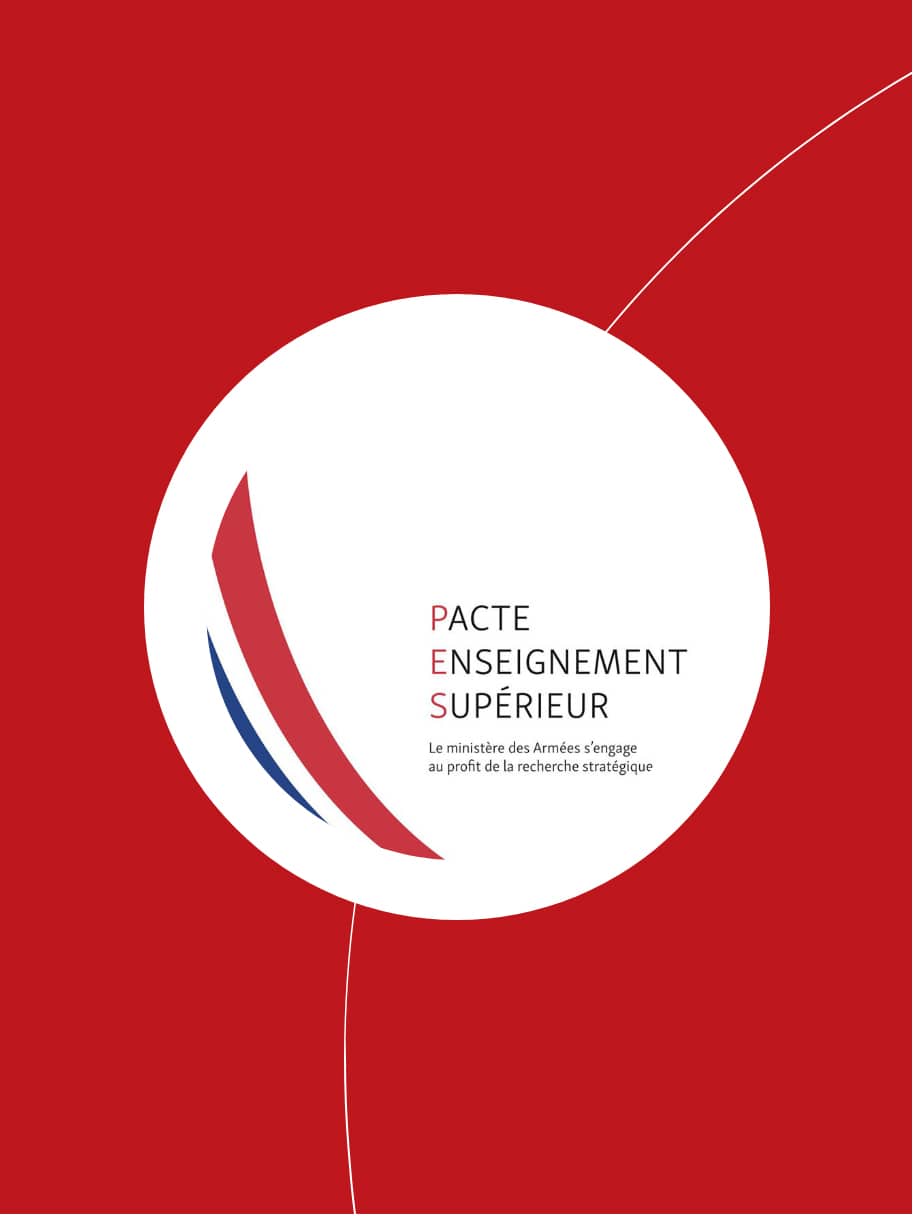Publication of the Stratégique review n°126/127 on the “Second Space Age”

The Institute of Strategy and Defense Studies is pleased to announce the publication of the new double issue of the journal Stratégique devoted to New Space, edited by the Institut de Stratégie Comparée and directed by Valentin Degrange.
The growing development of space activities has allowed the emergence of new players alongside the traditional space powers. States such as China, India and Japan, aware of the strategic asset they represent, have thus considerably developed their space capabilities. In recent years, various space programs for scientific purposes have been carried out by these states and have proven their mastery of space technologies. They join the United States, Russia and the member states of the European Space Agency in the closed circle of space nations. Other ambitious countries, such as the United Arab Emirates, are using it as a lever for a consciously structured policy of influence. Thanks to well-chosen partnerships and the realization of missions with a strong media-political impact, they have succeeded in making themselves known despite the relative youth of their space program. However, the most striking thing is the multiplication of private players, such as Space X and Blue Origin. Major transformations took place in the space sector during the 1990s, and the irruption of economic interests in an industry that had been under the monopolistic control of the States had the effect of opening up the space systems markets to private companies. This phenomenon, called the New Space, refers to the recent appearance of a large number of start-ups whose aim is to carry out space activities for commercial purposes, and the resulting changes in the international space market.
« Private actors maintain an ambiguous status, still largely dependent on the State in which they are based, while participating in the development of space activities and the technologies necessary to their realization. »
Some people already see the beginning of a “New Space Age”, where a new distribution of roles is now emerging between the public and private sectors. The example of Luxembourg, which in 2017 adopted a law on the exploitation of natural resources in outer space despite its lack of space capacity, highlights the interest for states to foster the development of their private sector. The coexistence of the latter, traditional actors of space activities and privileged subjects of space treaties, and of private companies that have appeared in recent years questions the uncertain future of the relations between the representatives of Old Space and New Space. These oscillate for the moment between competition and complementarity: the private actors keep an ambiguous status, still largely dependent on the State in which they are based, while participating in the development of space activities and the technologies necessary to their realization. Articulated in three parts, this issue of Stratégique attempts not only to draw the contours of the dynamic notion of New Space but also to highlight its specific problems. The multiplication of commercial space actors and activities is indeed leading to upheavals at the geopolitical, strategic and institutional levels.
| Georges-Henri Soutou, de l’institut | Éditorial |
| Valentin Degrange | Introduction |
| La géopolitique du Newspace, entre avantage et technologique et instrument de communication | |
| Pierre Marchand | L’exploitation du milieu extra-atmosphérique lointain : quels enjeux géopolitiques ? Le cas des missions spatiales lunaires |
| Philippe Boulanger | Géopolitique du Geospatial Intelligence dans le monde |
| Anne Maurin | « Поехали ! », la vision russe du cosmos. Tenir les points hauts : une affaire d’État |
| Amaury Dufay | Acceptabilité des efforts spatiaux : enseignements et conséquences de l’arrivée à maturité du New Space sur la bataille du faire-savoir |
| Eric Bertrand Lekini | Le New Space extra-atmosphérique : vecteur d’égalisation stratégique ou nouveau heartland de la distribution de la puissance ? |
| Réponse du Professeur Thierry Widemann | |
| Enjeux stratégiques des activités spatiales militaires | |
| Jean-Jacques Dechezelles | Le programme SAMRO, 1977-1982. Premier programme militaire spatial de reconnaissance |
| Mathieu Bataille | L’interaction entre New Space et secteur de la défense aux États-Unis : quelles conséquences sur les opérations spatiales militaires américaines ? |
| Brian Kalafatian | Du secret à sa libéralisation : le rôle des acteurs publics de la défense et du renseignement dans l’ouverture à la commercialisation de l’imagerie satellitaire aux États-Unis |
| Les institutions en évolution, de l’État-pilote à l’État-partenaire | |
| Antony Dabila | L’émergence des « Armées de l’Espace » et la « martialisation » des programmes spatiaux |
| Hugo Peter | Le New Space, quel rôle à jouer dans la création de la règle en droit spatial ? |
| Valentin Degrange | Nouveaux acteurs, nouvelle gouvernance : faire du droit spatial à l’ère du New Space |
| Entretien stratégique |
|
| Avec Stanislas Maximin | |
| Varia | |
| Stanislas Gourlez de La Motte | Le monde a changé : aide-mémoire stratégique |
| Actualités de la stratégie – Notes de lecture | |
| Recension |
The review is available on the website of the Institut de Stratégie Comparée, at the price of 20€ (in French).
The other projects
Lucien Poirier Prize
Découvrir ce projet
IESD is hiring its next Research Fellow
Découvrir ce projet
“Center of Excellence” Label of the Ministry of Armed Forces
Découvrir ce projet
Franco-Brazilian Working Group on Defense Policy and Strategy
Découvrir ce projet

